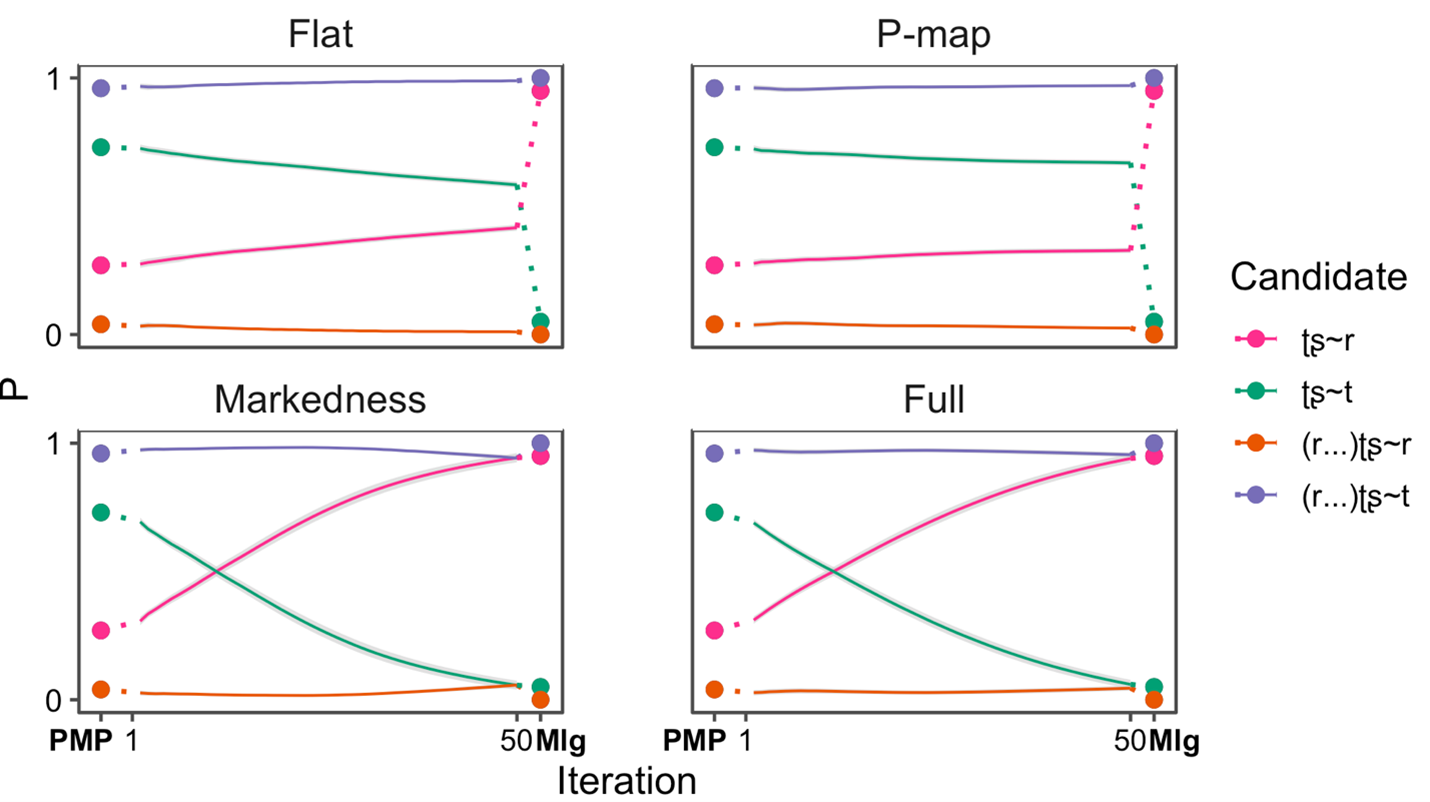A key goal in phonology is to understand the factors that affect phonological learning. This research addresses the issue by examining how paradigms are reanalyzed over time.
Malagasy has a class of stems, called weak stems, where final consonants alternate under suffixation. Comparison of historical and modern Malagasy shows that weak stem paradigms have undergone extensive reanalysis in a way that cannot be predicted by the probabilistic distribution of alternants.
This poses a problem for existing quantitative models of reanalysis, where reanalysis is always towards the most probable alternant. I argue instead that reanalysis in Malagasy is driven by both distributional factors and a markedness bias.
To capture the Malagasy pattern, I propose a maximum entropy learning model (Goldwater & Johnson, 2003), with a markedness bias implemented via the model’s prior probability distribution.
This biased model successfully predicts the direction of reanalysis in Malagasy, outperforming purely distributional models.
Figure: Comparison of four models for ʈʂa-final weak stems, plotting rates of alternation over 50 iterations (PMP=observed rate pre-reanalysis, Mlg=observed rate post-reanalysis). The markedness-biased and full models, both of which have a markedness bias, outperform other models of reanalysis.

